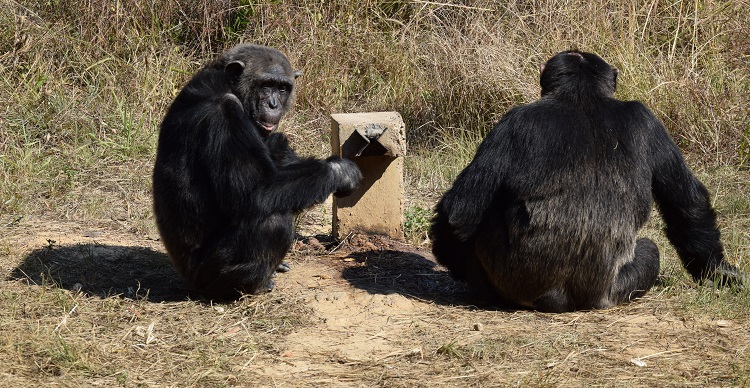Chimps are users

Chimpanzees use others to get what they want, in a similar way to human beings, new research at the University of St Andrews has found.
A team of researchers from the University of St Andrews, the University of Leipzig and the Max Planck Institute for Psycholinguistics in the Netherlands discovered that chimps can manipulate other chimps as tools to satisfy their own needs.
The study – published in the Journal of Comparative Psychology today (12 November 2018) – presented a group of semi-wild chimpanzees with an apparatus which would release juice from a distantly-located fountain.
Any individual chimpanzee could only either push the buttons or drink from the fountain but never push and drink simultaneously. Thus, to get the desired juice, another individual was needed.
During the testing, one adult male used other individuals more than 100 times to drink juice.
He retrieved them from the spacious enclosure, pushed them towards the apparatus and repositioned them.
If they didn’t push the buttons, he then pushed them again towards the buttons or started begging by blowing raspberries and reaching out.
Dr Manon Schweinfurth of the School of Psychology and Neuroscience at St Andrews said: “While there is good evidence that social animals show elaborate cognitive skills to deal with others, there are few reports of animals physically using others like physical tools.”
In contrast to physical tools, a social tool – such as another individual – needs to perform an action that cannot be fully controlled by the social tool user, i.e., releasing the tool in order to drink from the fountain.
Using this strategy, the social tool user increased his juice intake drastically, while social tools did not receive any juice from their action.
Category Research